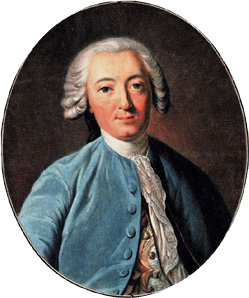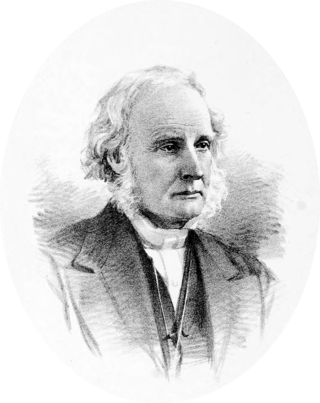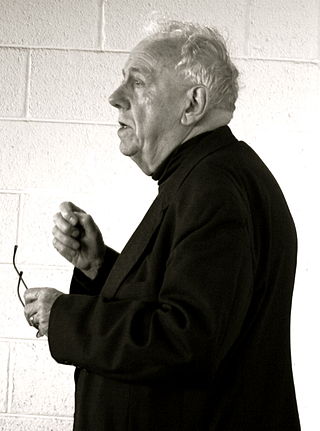Beginnings of Ethiopian philosophy
The character of Ethiopian philosophy is determined by the particular conditions of evolution of the Ethiopian culture. Thus, Ethiopian philosophy arises from the confluence of Greek and Patristic philosophy with traditional Ethiopian modes of thought. Because of the early isolation from its sources of Christian spirituality – Byzantium and Alexandria – Ethiopia received some of its philosophical heritage through Arabic versions.
The sapiential literature developed under these circumstances is the result of a twofold effort of creative assimilation: on one side, of a tuning of Orthodoxy to traditional modes of thought (never eradicated), and vice versa, and, on the other side, of absorption of Greek pagan and early Patristic thought into this developing Ethiopian-Christian synthesis. As a consequence, the moral reflection of religious inspiration is prevalent, and the use of narrative, parable, apothegm and rich imagery is preferred to the use of abstract argument. This sapiential literature consists in translations and adaptations of some Greek texts, namely of the Physiologus (cca. 5th century A.D.), The Life and Maxims of Skendes (11th century A.D.) and The Book of the Wise Philosophers (1510/22).
Mature Ethiopian philosophy
In the 17th century, the religious beliefs of Ethiopians were challenged by King Suseynos' adoption of Catholicism, and by a subsequent presence of Jesuit missionaries. The attempt to forcefully impose Catholicism upon his constituents during Suseynos' reign inspired further development of Ethiopian philosophy during the 17th century. Zera Yacob (1599–1692) is the most important exponent of this renaissance. His treatise Hatata (1667) is a work often included in the narrow canon of universal philosophy.
Zera Yacob
Zera Yacob had a culture entirely theological. Although of humble birth, he earned respect for his intellectual capacities, and went on to pursue the traditional Ethiopian theological education. Zera Yacob mastered Coptic theology and Catholic theology, and he had extensive knowledge of Jewish and Islamic religions. His spiritual vade mecum was David’s Book of Psalms, in which he sought comfort and inspiration.
Knowing thus two Christian interpretations of the Bible, as well as the two other major Abrahamic religions, and seeing the contradictions between them, Zera Yacob is led to refuse the authority of the Ethiopian tradition and of any tradition in general. He comes to think that the tradition is infested by lies, because men, in their arrogance, believe that they know everything and thus refuse to examine things with their own mind, blindly accepting what has been transmitted to them by their forefathers. The philosopher accepts then as unique authority his reason, and accepts from the Scriptures and from the dogmas only what resists a rational inquiry. He affirms that the human reason can find the truth, if it searches it and does not get discouraged in front of the difficulties.
Thus, by his piece-meal examination (this is what hatätä means), Zera Yacob arrives at an argument for the existence of God (an essence uncreated and eternal), based on the impossibility of an infinite chain of causes, and at the conviction that the Creation is good, because God is good. This belief is the basis for a criticism of ascetic morals and of some Jewish and Islamic moral precepts as well. By identifying the will of God with what is rational Zera Yacob rejects most of these moral precepts (e.g. concerning polygamy, or fasting, or sexual or alimentary interdictions) as blasphemy. He seems to think that all is good for the good one, reminding thus of the mode of thought expressed in the profession of faith of the other great Zera Yaqob, the Emperor from the 15th century.
Walda Heywat
Zera Yacob had a disciple, Walda Heywat, who also wrote a philosophical treatise, systematising his master’s thought. He accorded more attention to the practical and educational problems, and he tried to connect Zera Yacob’s philosophy with the kind of wisdom expressed in the earlier sapiential literature. Walda Heywat recurs intensively to illustrations and parables, and many times the source of his examples is the Book of the Wise Philosophers. Although his work is arguably less original than that of his master's, it can be considered "more Ethiopian", since it represents a synthesis through which some ideas engendered by Zera Yacob's rejection of tradition are brought together with traditional Christian-inspired wisdom. It is "more Ethiopian" also in the sense that it addresses some practical, social and moral issues that most Ethiopians of his time encountered in their lives. Thus, Walda Heywat's work is less speculative, but more national in character than the treatise of his master, Zera Yacob.
Natural theology, once also termed physico-theology, is a type of theology that seeks to provide arguments for theological topics based on reason and the discoveries of science, the project of arguing for the existence of God on the basis of observed natural facts, and through natural phenomena viewed as divine, or complexities of nature seen as evidence of a divine plan or Will of God, which includes nature itself.

William Paley was an English Anglican clergyman, Christian apologist, philosopher, and utilitarian. He is best known for his natural theology exposition of the teleological argument for the existence of God in his work Natural Theology or Evidences of the Existence and Attributes of the Deity, which made use of the watchmaker analogy.

Claude Adrien Helvétius was a French philosopher, freemason and littérateur.

James McCosh was a philosopher of the Scottish School of Common Sense. He was president of Princeton University 1868–88.

Alasdair Chalmers MacIntyre is a Scottish-American philosopher who has contributed to moral and political philosophy as well as history of philosophy and theology. MacIntyre's After Virtue (1981) is one of the most important works of Anglophone moral and political philosophy in the 20th century. He is senior research fellow at the Centre for Contemporary Aristotelian Studies in Ethics and Politics (CASEP) at London Metropolitan University, emeritus Professor of Philosophy at the University of Notre Dame, and permanent senior distinguished research fellow at the Notre Dame Center for Ethics and Culture. During his lengthy academic career, he also taught at Brandeis University, Duke University, Vanderbilt University, and Boston University.

Feng Youlan was a Chinese philosopher, historian, and writer who was instrumental for reintroducing the study of Chinese philosophy in the modern era. The name he published under in English was 'Fung Yu-lan,' for which see, for example, the Bodde translation of A History of Chinese Philosophy. This earlier spelling also occurs in philosophical discussions, see for example the work of Wing-tsit Chan.

Anton Wilhelm Amo or Anthony William Amo was a Nzema philosopher from Axim, Dutch Gold Coast. Amo was a professor at the universities of Halle and Jena in Germany after studying there. He was brought to Germany by the Dutch West India Company in 1707 and was presented as a gift to Dukes Augustus William and Ludwig Rudolf of Brunswick-Wolfenbüttel, being treated as a member of the family by their father Anthony Ulrich, Duke of Brunswick-Wolfenbüttel. In 2020, Oxford University Press published a translation of his Latin works from the early 1730s.
African philosophy is the philosophical discourse produced in Africa or by indigenous Africans. African philosophers are found in the various academic fields of present philosophy, such as metaphysics, epistemology, moral philosophy, and political philosophy.
Kwasi Wiredu was a Ghanaian philosopher. Often called the greatest African philosopher of his generation, his work contributed to the conceptual decolonisation of African thought.
Kwame Gyekye was a Ghanaian philosopher, and an important figure in the development of modern African philosophy. Gyekye was an emeritus professor of philosophy at the University of Ghana, and a visiting professor of philosophy and African-American studies at Temple University. He is known for theorizing the concept of person-hood on the basis of Akan cultural paradigm in debate with Kwasi Wiredu, which is seen as one of the defining moments of modern African philosophy.
Contemporary Islamic philosophy revives some of the trends of medieval Islamic philosophy, notably the tension between Mutazilite and Asharite views of ethics in science and law, and the duty of Muslims and role of Islam in the sociology of knowledge and in forming ethical codes and legal codes, especially the fiqh and rules of jihad. See list of Islamic terms in Arabic for a glossary of key terms used in Islam.

Blatten Geta Heruy Welde Sellase was an Ethiopian diplomat who was Foreign Minister of Ethiopia from 1930 to 1936 and a writer in Amharic. Bahru Zewde observes that his career "stands out as the great success story ... of the early twentieth-century intellectuals," then continues, "His prolific literary record, his influence with Tafari-Hayla-Sellase and his ascent in the bureaucratic hierarchy were all characterized by an unchequered progression. Edward Ullendorff concurs in this evaluation, describing his oeuvre as "a considerable and distinguished literary output."
Zera Yacob was an Ethiopian philosopher from the city of Aksum in the 17th century. His 1667 treatise, developed around 1630 and known in the original Ge'ez language as the Hatata (Inquiry), has been compared to René Descartes' Discours de la méthode (1637).
Claude Sumner, SJ (1919–2012) was a Canadian professor of philosophy who worked at Addis Ababa University from 1953. He was best known for his work on Zera Yacob.

Dag Herbjørnsrud is a historian of ideas, author, a former editor-in-chief, and a founder of Center for Global and Comparative History of Ideas in Oslo. His writings have been published by Aeon, the American Philosophical Association (APA), Dialogue and Universalism, Cosmopolis, etc., and he was formerly a columnist for Al Jazeera English. Herbjørnsrud was the guest editor of a special issue of the bilingual journal Cosmopolis (Brussels), on "Decolonizing the Academy"; one of his contributors was the author and Professor Ngũgĩ wa Thiong'o. He sits on the Editorial Review Board of the book series Global Epistemics at Rowman & Littlefield.
Walda Heywat, also called Mitku, was an Ethiopian philosopher. He was the beloved disciple of Zara Yacob, who wrote a well regarded work on the nature of truth and reason. Heywat took his mentor’s work and expanded upon it, addressing issues encountered by Ethiopians of that time.
Hatata is a Ge'ez term describing an investigation/inquiry. The hatatas are two 17th century ethical and rational philosophical treatises from present-day Ethiopia: One hatata is written by the Abyssinian philosopher Zara Yaqob, supposedly in 1668. The other hatata is written by his patron's son, Walda Heywat some years later, in 1693 or later. Especially Zera Yacob's inquiry has been compared by scholars to Descartes'. But while Zera Yacob was critical towards all religions, including his "own" Ethiopian Orthodox Tewahedo Church, Descartes followed a more traditional religious perspective: "A major philosophical difference is that the Catholic Descartes explicitly denounced ‘infidels’ and atheists, whom he called 'more arrogant than learned' in his Meditations on First Philosophy (1641)."

British philosophy refers to the philosophical tradition of the British people. "The native characteristics of British philosophy are these: common sense, dislike of complication, a strong preference for the concrete over the abstract and a certain awkward honesty of method in which an occasional pearl of poetry is embedded".

Scottish philosophy is a philosophical tradition created by philosophers belonging to Scottish universities. Although many philosophers such as Francis Hutcheson, David Hume, Thomas Reid, and Adam Smith are familiar to almost all philosophers it was not until the 19th century that the notion of 'Scottish philosophy' became recognized and highly regarded internationally. In the 20th century, however, this tradition declined as Scottish-educated philosophers left for England.

The Gondarine period was a period of Ethiopian history between the ascension of Emperor Fasilides in 1632 and a period of decentralization in 1769, known as the Zemene Mesafint.










